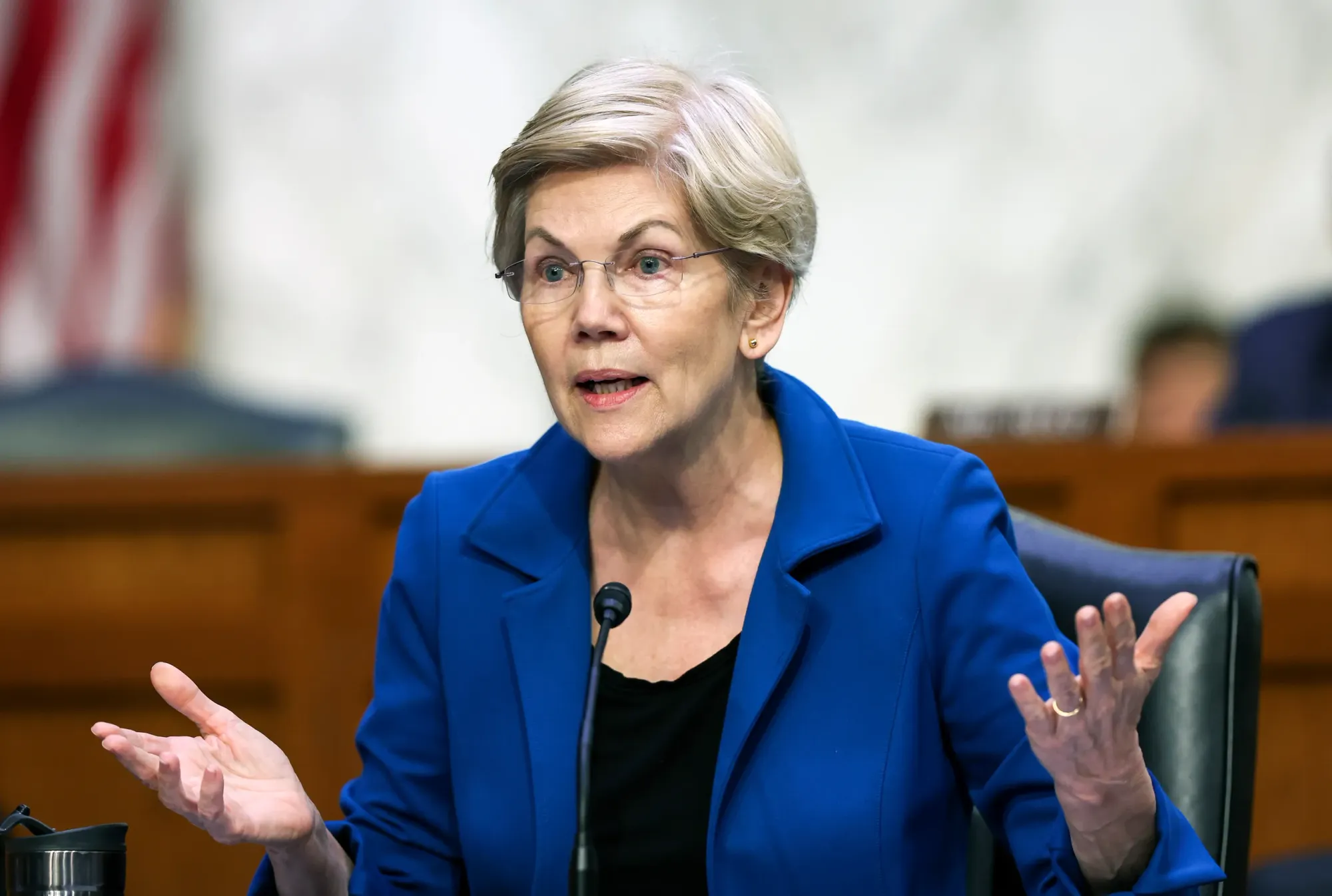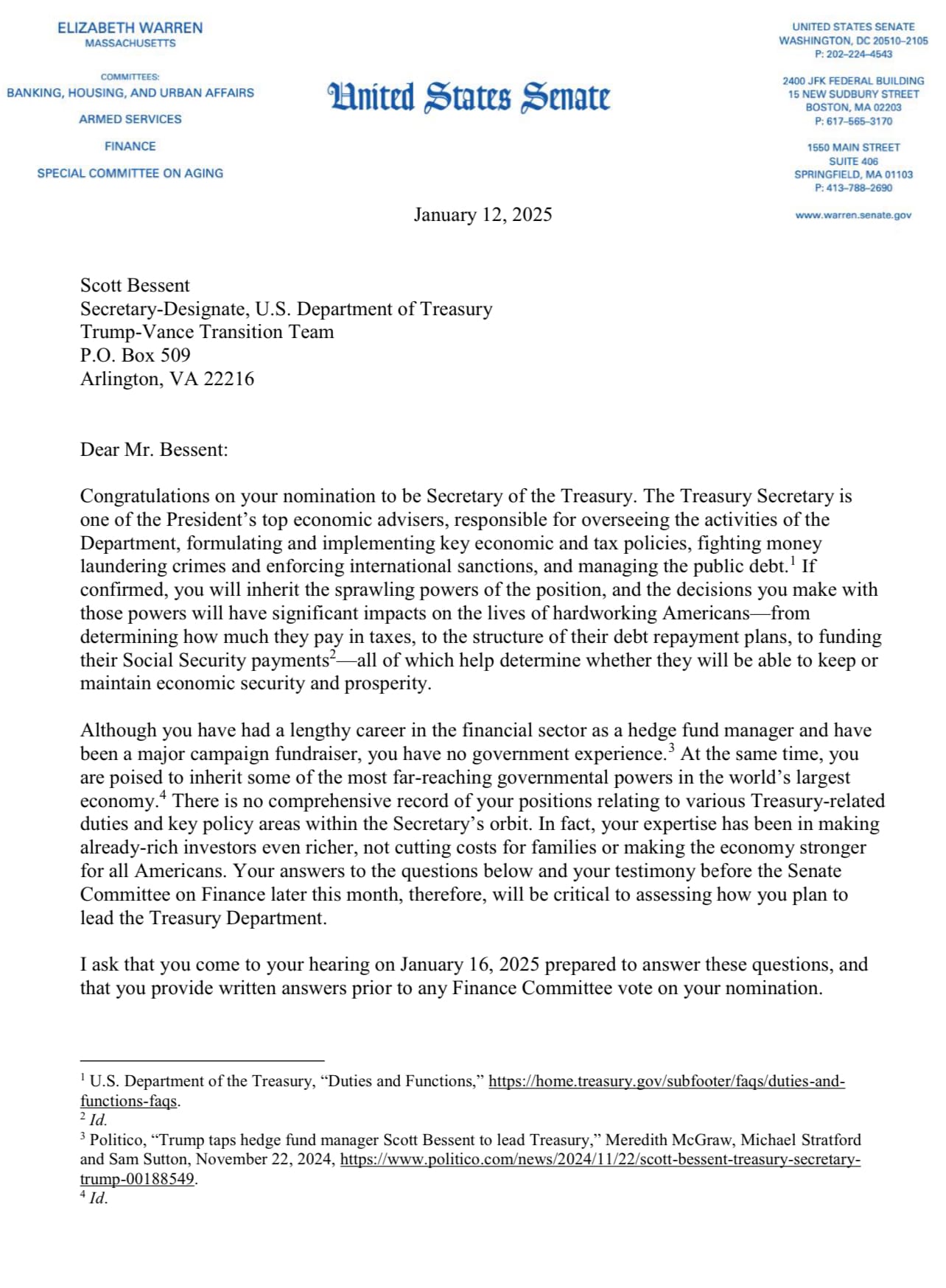Sen. Elizabeth Warren Sends Letter to Trump Treasury Nominee Advocating for Tighter Crypto Regs

US Senator Elizabeth Warren has recently dispatched a comprehensive open letter to Donald Trump's nominee for Treasury Secretary, Scott Bessent, pushing for a reevaluation and potential tightening of regulations concerning crypto assets.
In her extensive 31-page letter dated January 12, Warren poses critical questions about the scope and effectiveness of current Anti-Money Laundering (AML) and Counter-Terrorism Financing (CTF) measures in the context of cryptocurrencies. She underscores the urgent need to enhance these frameworks, alleging that cryptocurrencies have become tools for nefarious activities such as money laundering, sanctions evasion, and funding major national security threats, meanwhile turning a blind eye to the U.S. Dollar which has been historically used more for these same activities.
Warren's letter probes whether the Treasury Department should be endowed with greater authority to sanction the crypto sector, suggesting the implementation of risk-based provisions to prevent financial crimes involving digital assets. She further inquires if secondary sanctions should be applied to sever ties between US entities and foreign fintech or crypto operators, potentially isolating them from American financial relationships.

Warren's Regulatory Concerns and Proposals
The senator's concerns extend to the regulatory oversight of stablecoins and the extension of the Bank Secrecy Act's authority to include overseas companies linked to US markets. The Bank Secrecy Act mandates financial institutions to keep detailed records and report to the Treasury, obligations that under current laws, also extend to US-based cryptocurrency exchanges, wallet providers, and other services involved in digital asset transactions.
Warren has requested that Bessent be ready to address these issues during his confirmation hearing scheduled for January 16, highlighting the urgency of adapting regulatory frameworks to the evolving landscape of decentralized finance (DeFi).
Warren's advocacy for stronger crypto regulations is not new. She previously introduced the Digital Asset Anti-Money Laundering Act under the Biden admin in both 2022 and 2023, aiming to align the crypto industry with existing AML and CTF standards. This legislation has faced considerable opposition, notably from the Chamber of Digital Commerce and a group of former military and national security officials, who argue that such regulations might push the industry offshore, thereby exacerbating rather than mitigating security risks.
This push for regulatory reform comes at a pivotal moment, just days before Trump's inauguration, where he has promised a crypto-friendly administration. With a significant number of pro-crypto candidates having won seats in Congress, the political landscape might be ripe for a shift towards more supportive crypto policies, juxtaposed against Warren's call for stringent oversight.

